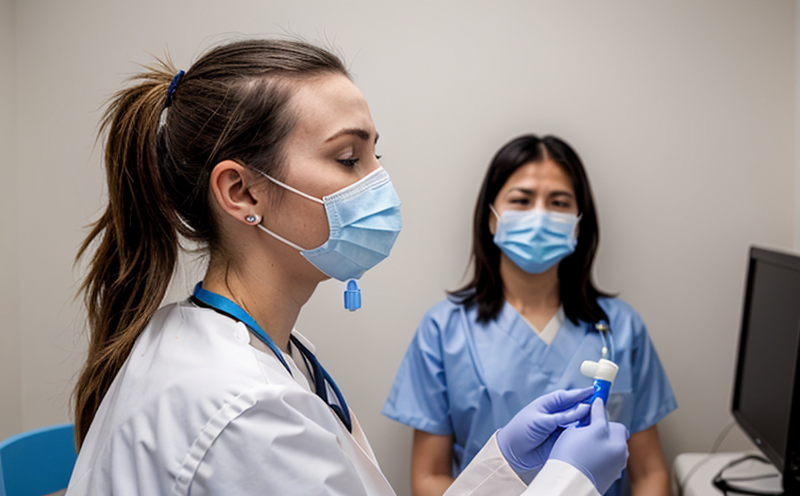Veterinary Respiratory Pathogen PCR Testing Panels
The Veterinary Respiratory Pathogen PCR Testing Panels are designed to identify and quantify pathogens responsible for respiratory diseases in animals. This comprehensive suite of tests is essential for diagnosing, treating, and preventing infectious diseases that affect the respiratory system. Respiratory diseases can have a significant impact on an animal's health and well-being, affecting their ability to breathe efficiently and leading to reduced quality of life.
The test panels are based on polymerase chain reaction (PCR) technology, which amplifies DNA or RNA sequences specific to various pathogens. This allows for highly sensitive detection even in small quantities of the target pathogen. The tests cover a wide range of pathogens including bacteria, viruses, fungi, and parasites that commonly cause respiratory issues.
The primary purpose of these panels is to provide accurate, rapid, and reliable diagnostic information to veterinarians and animal health professionals. This enables them to make informed decisions about treatment protocols and management strategies. The tests can be performed on various types of specimens such as nasal swabs, bronchoalveolar lavage fluids, and sputum samples.
The PCR technology used in these panels allows for the detection of multiple pathogens simultaneously within a single test run. This efficiency is crucial in managing respiratory diseases effectively, especially when dealing with concurrent infections or mixed pathogen scenarios. The test results are provided as quantitative data, which helps in assessing the severity of the infection and guiding appropriate treatment.
The tests are conducted using state-of-the-art instrumentation that ensures high accuracy and precision. Each sample is processed following strict protocols to minimize contamination risks and ensure consistent results. The testing process involves several key steps: specimen collection, nucleic acid extraction, amplification using PCR technology, and data analysis. This comprehensive approach guarantees the reliability of the test outcomes.
The Veterinary Respiratory Pathogen PCR Testing Panels are compliant with international standards such as ISO 15189 and ISO/IEC 17025, ensuring that the testing procedures meet the highest quality and accuracy requirements. These panels are used in various sectors including veterinary medicine, animal health research, and diagnostic laboratories.
The tests are particularly useful for identifying pathogens responsible for respiratory diseases such as bronchitis, pneumonia, and pleurisy. They can also help in monitoring the effectiveness of treatments and detecting resistant strains of pathogens. The ability to rapidly identify these pathogens is crucial in controlling outbreaks and preventing the spread of infectious diseases.
Applied Standards
| Standard | Description |
|---|---|
| ISO 15189:2012 | International standard for quality management systems in medical laboratories. |
| ISO/IEC 17025:2017 | Standard for competence of testing and calibration laboratories. |
| ASTM E2496-18 | Standard practice for respiratory pathogen detection using real-time PCR. |
| IEC 62305:2017 | International standard for safety of medical electrical equipment used in non-electrical environments. |
Why Choose This Test
The Veterinary Respiratory Pathogen PCR Testing Panels offer several advantages over traditional diagnostic methods. Firstly, they provide rapid results, typically within a few hours after sample collection. This quick turnaround time is critical in managing respiratory diseases effectively and preventing further spread of the infection.
- High sensitivity: The tests can detect very small amounts of pathogen DNA or RNA.
- Specificity: Each panel targets specific pathogens to avoid false positives.
- Multiplex capability: Multiple pathogens can be tested simultaneously in a single run, saving time and resources.
- Routine monitoring: The tests are suitable for routine monitoring of respiratory health in animals.
- Resistance detection: They help identify resistant strains of pathogens that may require alternative treatment approaches.
The panels are designed to meet the needs of various stakeholders including veterinarians, animal owners, and research institutions. They provide essential information for diagnosing respiratory diseases accurately and efficiently, thereby improving patient outcomes.
Moreover, the tests comply with international standards ensuring their reliability and accuracy. This compliance is crucial for maintaining high-quality diagnostics in veterinary medicine.





